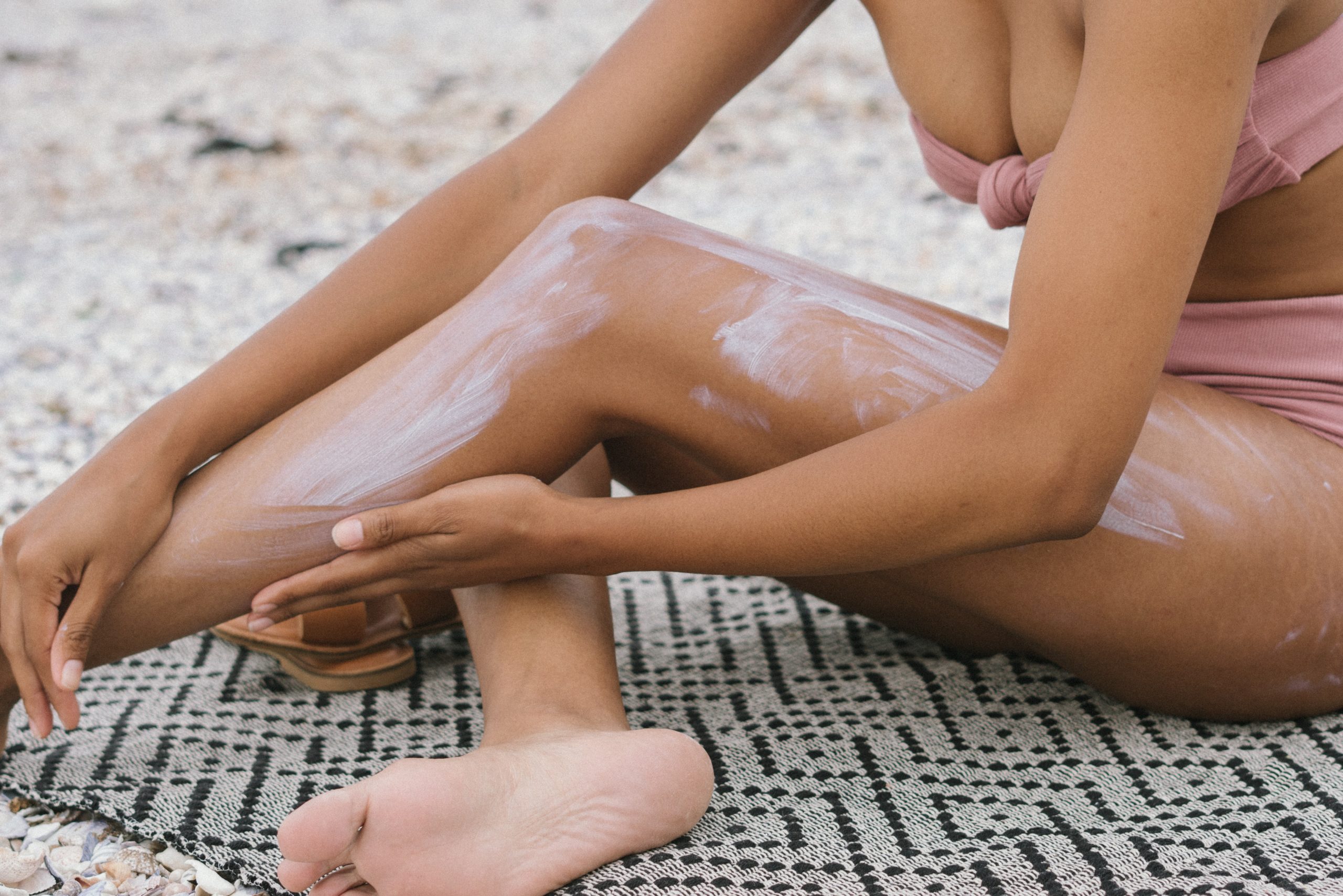Your hyperpigmentation won’t fade without sunscreen. It doesn’t matter what the brands are telling you. All of those hyperpigmentation serums and creams are nothing without SPF to keep those areas protected from further damage. So why aren’t you using your sunscreen correctly to help fade things faster?
What Is Hyperpigmenation?
Hyperpigmentation is a melanin response to trauma on the skin or hormonal changes within the body. Most commonly, people will experience Post-Inflammatory Hyperpigmentation (PIH) after a breakout. This appears as reddish-brown to dark brown marks on the skin and are usually referred to colloquially as “dark marks”.
Hormonal conditions like melasma/”preganancy mask” cause hyperpigmentation as the result of increased estrogen. This also causes the production of more melanin within the body.
Melanin, which is produced by melanocytes, is one of our skin’s natural defense mechanisms. It helps to protect us from UV rays and even some forms of skin cancer. In fact, a tan is a melanin response to too much sun exposure. A sunburn happens when our bodies can’t produce melanin quickly enough to protect us from the sun. But we still need sunscreen. All of us.
How does Sunscreen Help with Hyperpigmentation?
Sunscreen is added protection for any area of hyperpigmentation. While sunscreen alone doesn’t get rid of or fade hyperpigmentation, it certainly helps. Hyperpigmentation can often be temporary but the lack of sunscreen can lead to more permanent discoloration. Utilizing sunscreen appropriately will help prevent additional photodamage caused by UV rays further deepening the pigmentation.
In addition, most products used to address hyperpigmentation are photosensitive—which causes deeper discoloration. Using these products but not wearing sunscreen will actually render their use ineffective.
How should I be using Sunscreen?
You should be wearing sunscreen as directed to help with your hyperpigmentation. For most brands of sunscreen, this means making your initial application 15 minutes before going outside and reapplying every two hours. You don’t need to apply sunscreen after sunset, however.
The easiest way to reapply your sunscreen is by using a SPF mist/spray. These are relatively inexpensive and are sized to fit in most bags without being too obtrusive.
Setting the Record Straight on Hyperpigmentation and Sunscreen
Let’s close this post out by addressing some common myths. Chemical sunscreen does not cause hyperpigmentation. There are no specific sunscreens for clearing hyperpigmentation or fading “dark spots”. And sunscreen itself will not reduce the presence of acne scars.

